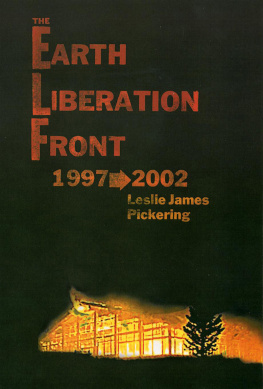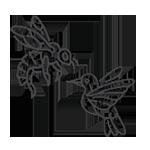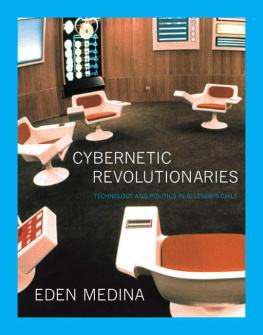ACKNOWLEDGMENTS
_ _ _ _ _
This project began in fall 1998, with the support of fellowships from the John Simon Guggenheim Foundation and the Dibner Institute for the History of Science and Technology at MIT. A lengthy first draft was written during a sabbatical at the Science Studies Unit of the University of Edinburgh in 20023, supported in part by a grant from the National Science Foundation. In 20056 I enjoyed a fellowship from the Illinois Program for Research in the Humanities at the University of Illinois at Urbana-Champaign, and the final draft of the book was completed while I was a fellow at the Center for Advanced Study in the Behavioral Sciences at Stanford in 20067. Along the way, visits of a month or two to the Max Planck Institute for the History of Science in Berlin made possible bursts of sustained research and writing. I am immensely grateful to all of these institutions, and to David Bloor as director of the Science Studies Unit and Ursula Klein and Hans-Jrg Rheinberger, whose research groups I joined in Berlin.
The book could not have been written without the active assistance of many cyberneticians, colleagues, friends and family members of the book's principal characters, and various others whose work I have referred to and discussed: Jill Ashby, John Ashby, Mick Ashby, Sally Bannister, Ian Beer, Stafford Beer, Vanilla Beer, Rodney Brooks, Peter Cariani, Raul Espejo, John Frazer, Ranulph Glanville, Nick Green, Amanda Heitler, Garnet Hertz, Stewart Kauffman, Allenna Leonard, Paul Pangaro, the late Elizabeth Pask, Simon Penny, Ruth Pettit, Jasia Reichardt, Bernard Scott, Yolanda Sonnabend, Joe Truss, David Whittaker, and Stephen Wolfram. My thanks to all of them, especially perhaps to Paul Pangaro, who introduced me to many of the others at an early stage in my research and was always ready with information, feedback, and encouragement.
Among my colleagues and friends, frequent conversations, critiques, and encouragement from the likes of Peter Asaro, Geof Bowker, Bruce Lambert, and Fernando Elichirigoity were at different times and in different ways very important to me. Gordon Belot, Michael Friedman, Eden Medina, Laura Ruetsche, and Fred Turner read and commented on the entire manuscript; Erica Goode, Peter Harries-Jones, Malcolm Nicolson, Dave Perkins, and Henning Schmidgen on various chapters. Others who have contributed constructively and critically include Ian Carthy, Adrian Cussins, Manuel DeLanda, Otniel Dror, John Geiger, Slava Gerovitch, Rhodri Hayward, David Hopping, Sharon Irish, Evelyn Fox Keller, Vera Ketelboeter, Jeffrey Kripal, Julia Kursell, David Lambert, Mike Lynch, Brian Marick, Clark McPhail, Diana Mincyte, Anya Pantuyeva, Jan Nederveen Pieterse, Judith Pintar, Amit Prasad, Carol Steiner, Steve Sturdy, Lucy Suchman, and Norton Wise. My thanks go to all of them, too.
I thank Jane Flaxington for her help in the endless quest for permission to reproduce figures. At the University of Chicago Press, I thank Douglas Mitchell and Timothy McGovern for their editorial care and assistance. Erik Carlson's copyediting was exemplary, educational, and fun.
Finally, my love to Jane, Lucy, Thomas, and Alex for putting up with my eccentricities, now including this book.
Exeter, April 10, 2008
1
_ _ _ _ _ _
THE ADAPTIVE BRAIN
THE MAKING OF A SYNTHETIC BRAIN REQUIRES NOW LITTLE MORE THAN TIME AND LABOUR.... SUCH A MACHINE MIGHT BE USED IN THE DISTANT FUTURE... TO EXPLORE REGIONS OF INTELLECTUAL SUBTLETY AND COMPLEXITY AT PRESENT BEYOND THE HUMAN POWERS.... HOW WILL IT END? I SUGGEST THAT THE SIMPLEST WAY TO FIND OUT IS TO MAKE THE THING AND SEE.
ROSS ASHBY,"DESIGN FOR A BRAIN" (1948, 38283)
On 13 December 1948, the Daily Herald carried a front-page article entitled "The Clicking Brain Is Cleverer Than Man's," featuring a machine called the homeostat built by W. Ross Ashby. Soon the rest of the press in Britain and around the world followed suit. In the United States, an article in Time magazine, "The Thinking Machine," appeared on 24 January 1949 (p. 66), and by 8 March 1949 Ashby was holding forth on BBC radio on "imitating the brain." At much the same time, W. Grey Walter appeared on BBC television showing off a couple of small robots he had built, Elmer and Elsie, the first examples of his robot "tortoises," or, more pretentiously, of a new inorganic species, Machina speculatrix. One appeared in a family photo in Time (fig. 1.1). In 1952, Gordon Pask began work on his Musicolour machinean electromechanical device that collaborated in obscure ways with a musician to generate a synesthetic light show. Soon he was also experimenting with quasi-biological electrochemical computers that could evolve new senses, and within a decade he was designing buildings that could reconfigure themselves in "conversation" with their users. In 1959 Stafford Beer published a book imagining an automated factory controlled by a biological computer perhaps a colony of insects or perhaps a complex ecosystem such as a pond. By the early 1970s, he was redesigning the "nervous system" of the Chilean economy at the invitation of the socialist government of Salvador Allende.

Figure 1.1. The cyborg family. Source: de Latil 1956, facing p. 34.
Examples like these convey some of the flavor of the history explored in the following chapters. In this chapter and the next I want to discuss more generally what cybernetics is, or was, and why it interests me. (The tense is difficult; cybernetics as a field is alive today, but the main characters of this book are all now dead. I will tend therefore to speak of cybernetics in the past tense, as referring to a historical body of work.)










